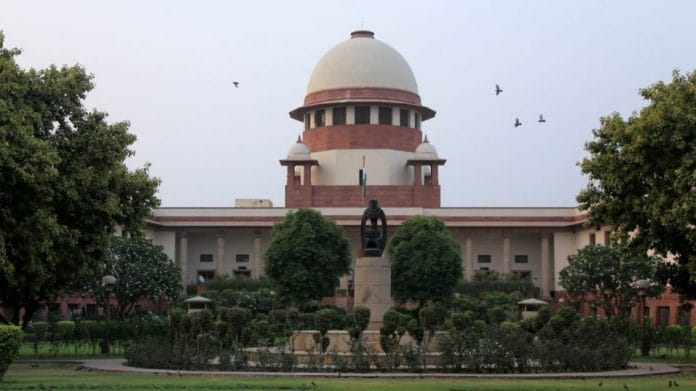Front Page
The Supreme Court upheld the constitutional validity of the Aadhaar (Targeted Delivery Of Financial and Other Subsidies, Benefits And Services) Act, 2016, Wednesday.
Only one of the five judges on the bench, Justice D.Y. Chandrachud, expressed dissent. While his four brother judges emphasised how the unique identity empowered the marginalised, Justice Chandrachud termed the Aadhaar Act a “constitutional fraud”.
He also expressed “his displeasure at the government passing a series of orders making Aadhaar compulsory for various reasons, in defiance of interim orders from the Supreme Court”.
All the major English dailies have praised the Supreme Court for delivering a very balanced verdict, with The Economic Times being the only exception.
“The majority view of the five-member bench of the Supreme Court on Aadhaar is confusing and itself confused,” the paper writes in its editorial.
Welcoming the verdict, The Times of India headlines its editorial “Cutting the bloat”, with a strapline adding, “Aadhaar was unwieldy and growing dangerously. SC restricts it to welfare schemes”.
The man who piloted the project in its initial years and was the brain behind it, Nandan Nilekani, writes in Hindustan Times, “The verdict is out, and it is clear: The Supreme Court has supported the inclusive vision of the Aadhaar project first defined in 2009, and upheld its validity.”
In another important verdict Wednesday, the Supreme Court gave allowed live-streaming of court proceedings. The Hindu reports that the court will have the final say about the live-streaming of individual cases and “the decision cannot be appealed”.
Senior Supreme Court advocate Indira Jaising had petitioned the court to start live-streaming court proceedings.
Another significant judgment delivered Wednesday by a five-judge Constitution Bench, comprising Chief Justice of India Dipak Misra, and Justices Kurian Joseph, R.F. Nariman, S.K. Kaul and Indu Malhotra, saw the court unanimously decline a plea to revisit its 2006 verdict on reservation in promotions.
The Indian Express reports that the court “ruled that states no longer need to collect quantifiable data on the backwardness of SCs and STs in granting quota in promotions, but will have to back it with data to show their inadequate representation in the cadre”.
“The whole object of reservation is to see that backward classes of citizens move forward so that they may march hand in hand with other citizens of India on an equal basis. This will not be possible if only the creamy layer within that class bag all the coveted jobs in the public sector and perpetuate themselves…” The Hindu reports.
Prime Time
Big-ticket Ram Janmabhoomi verdict expected
On Republic TV, Arnab Goswami asked if the Supreme Court’s Ayodhya verdict, expected Thursday, will resolve the decades-old conflict.
“Tomorrow it’s not the BJP or the Congress deciding, it will be the Supreme Court who will decide,” said BJP spokesperson Gaurav Bhatia.
Islamic scholar Atiq-ur-Rehman added, “We will abide by the Supreme Court judgment under all circumstances, with the reservation that they will explain the logic behind it.”
Law and order in UP under lens
On India Today TV, anchor Preeti Choudhary asked why the law and order situation in Uttar Pradesh was going from bad to worse. The peg was the viral video of a Hindu woman being thrashed by police last week in Meerut over her alleged relationship with a Muslim man.
Ghanshyam Tiwari of the Samajwadi Party said, “Uttar Pradesh police have turned into religious fanatics. Now even cops abuse and thrash Hindu women. The BJP should apologise without any condition.”
Shaina NC of the BJP added, “The BJP always strives for Sab ka saath, sab ka vikas. The Meerut incident is an isolated incident.”
News it’s just kinda cool to know
Scientists at NASA’s Jet Propulsion Laboratory in California have now identified that global warming has played a significant role in making the Earth wobble.






